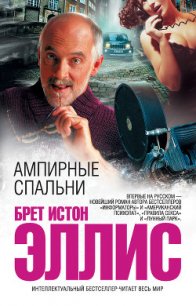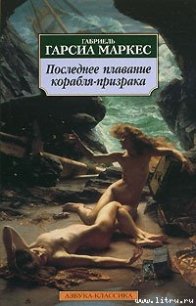Death Trick - Stevenson Richard (читаем книги онлайн бесплатно без регистрации txt) 📗
How these "masochists" were going to harm his sadistic son, Storrs didn't make clear. Maybe Storrs thought that in Indiana water went down the drain counterclockwise. It was the self-delusion wrought by love—or some grotesque permutation of love that I'd run into before but guessed I'd never understand.
At Bowman's request, the Storrs family led Bowman and me out to the young couple's cottage, where we discovered two knives missing from a velvet-lined wooden box of Sheffield cutlery. We also found—in a cardboard box full of Eddie Storrs's Elwell School mementos—a photograph of Billy Blount. The picture was taped to the front cover of Blount's phone book, the one stolen the previous weekend from his apartment.
Of the four phone numbers handwritten by Billy Blount on the back cover of the book, two—the first and second names, Huey's and Chris's—had penciled checkmarks after them, apparently signifying unsuccessful attempts on their lives. The third name, Frank Zimka's had been Xed out. The fourth name on the list, circled in red, was Mark Deslonde's.
23
I PHONED PHIL'S APARTMENT, WHERE DESLONDE WAS STAYING.
There was no answer. I phoned Deslonde's apartment, where no one was supposed to have been staying. The line was busy. It was five after seven. On Friday night Deslonde wouldn't
be going out until nine or ten. Bowman phoned Albany PD, and we raced out to the highway.
Bowman did a steady sixty-five on the two-lane road, weaving in and out of the Friday-evening traffic in his unmarked Ford. I said, "Haven't you got a siren on this thing, like Kojak? Christ!"
"Shut up."
We hurtled into the city, through Arbor Hill, up Lark, veered right and shot up past the park. Traffic on Madison was blocked off from New Scotland to South Lake. We eased around the barricade. Two Albany police cruisers were double-parked, blue lights flashing, in front of Deslonde's building, an old four-story yellow-brick apartment house. A crowd was gathering across the street from the building, and people were looking up. A figure sat perched on the fourth-floor window ledge in the center of the building. The figure was silhouetted against the light of the open window behind him, and at first I thought it was Frank Zimka, but of course it wasn't.
A fire engine and ambulance were parked up the street, and six men holding a safety net stood under the spot where Eddie Storrs was perched. The only sounds were from the crowd, speaking in subdued voices, and from the staticky sounds of the police radios. Twenty yards up the street, blocked in by the idling fire engine, sat the gold-colored Olds.
A patrolman explained to Bowman what had happened. "When we got here, Sergeant, the perpetrator—that guy on the windowsill—was in the hallway outside the Deslonde guy's apartment. When we came up the stairs, he must have seen us coming, and he opened up the window and climbed out there. He said not to get near him or he'd jump, so we backed off down the stairs and called the rescue squad. He's been up there for ten minutes, I'd say. An officer is in the stairwell behind the guy trying to talk him in, but he won't talk back, and if anyone gets near him he lets go of the window frame. That's about what we've got. You got any ideas? The captain's on his way."
Bowman said, "Where's Deslonde?"
"We haven't seen him," the cop said. "The door to his apartment looks like it's closed, but we can't get close enough to see for sure."
"Is there another entrance to the apartment?"
"The super says no."
"Get a ladder up to a side window," Bowman said. "And get a second ambulance out here. Cut through the window if you have to—but don't bust in, it'll be too noisy and might spook the jumper."
Bowman reached through the car window, pulled out his radio mike, and asked the dispatcher to dial Mark Deslonde's phone number and to patch Bowman through. We heard the clicks of the 434 number being dialed, and then the ringing. It rang twenty times before Bowman said, "Okay. Okay, that's enough."
He looked at me ruefully and shrugged. We stood there for a moment considering the possibilities, and then our eyes went back up to the figure on the ledge.
I said, "I'll get Blount. I'll need a car."
Bowman nodded and instructed a patrolman to take me wherever I wanted to go.
I said, "Ten minutes."
"In fifteen minutes," Bowman said, "we're going up there whether the kid jumps or not. The guy in the apartment comes first. There's no sign of him—he could be hurt in there."
We drove slowly up Madison until we'd rounded the corner onto Lake, then sped north toward Central and the baths.
I found them lounging on a cot in a closed cubicle, towels draped over their naked laps, surrounded by orange-juice cartons and Twinkie wrappers and looking sheepish. Teilhard de Chardin was nowhere in evidence. The ambiance did include, however, a certain distinctive combination of aromas.
I said, "We've found Eddie. You've got to come right now. Get dressed."
Timmy said, "No, first you're supposed to say, 'Holy smoke, I hope I'm not interrupting anything.'"
"Eddie Storrs is threatening suicide. Mark Deslonde may be in trouble. Hurry up. Move."
They moved.
A ladder was being raised up the right side of Deslonde's building from the narrow yard that separated it from an old
second-empire Victorian house. Eddie Storrs still sat motionless on the window ledge in front. Billy Blount stood in the shadows of the autumn foliage and gazed up at him. Up the street a second ambulance moved quietly into position behind the first.
Phil had arrived. He was arguing plaintively with a uniformed police captain now on the scene who was not allowing anyone to approach the yard with the ladder except "family members."
I said, "He's Deslonde's best friend," and looked at Bowman, who saw what I meant.
Bowman said to the captain, "He's the guy in the apartment's boyfriend, Lou. It's up to you."
"Family members only," the captain said blandly. He turned and walked away.
Phil started to lunge, and I stepped between them. Timmy and I wrestled Phil back into a yard across from Deslonde's building. He collapsed onto the ground and sat there, flushed, teeth clenched, his chest heaving.
Timmy stayed with Phil, and I walked back into the street where Bowman was standing. He said, "I make it a practice never to argue with a captain," and looked away.
I said, "That's not the way it happened. You were petty, and callous."
He looked back at me with hard eyes. "You people are going to make an incident out of this, aren't you? Blow it out of proportion."
I said, "I think so, yes."
"I'll deal with you later, Strachey. For a man who's broken as many laws as you have in the past week, you're acting pretty goddamned pushy with me. I want you to know I've just about come to the end of my rope with you."
"Do you want your defendant in the Kleckner case alive or dead?"
"Alive," he said. "It's expensive for the taxpayers but it's tidier on my record."
"Fine," I said. "I'll bring him down for you in return for an apology to Phil Jerrold, the guy you just fucked over in a particularly vicious manner."
He snorted and shook his head in disbelief. He turned toward the spot where Billy Blount was standing under a tree and gazing up at the man on the ledge. "Hey, come over here! You—Blount!"
Billy Blount walked into the middle of the street to where we stood.
I said, "Don't do what he says."




